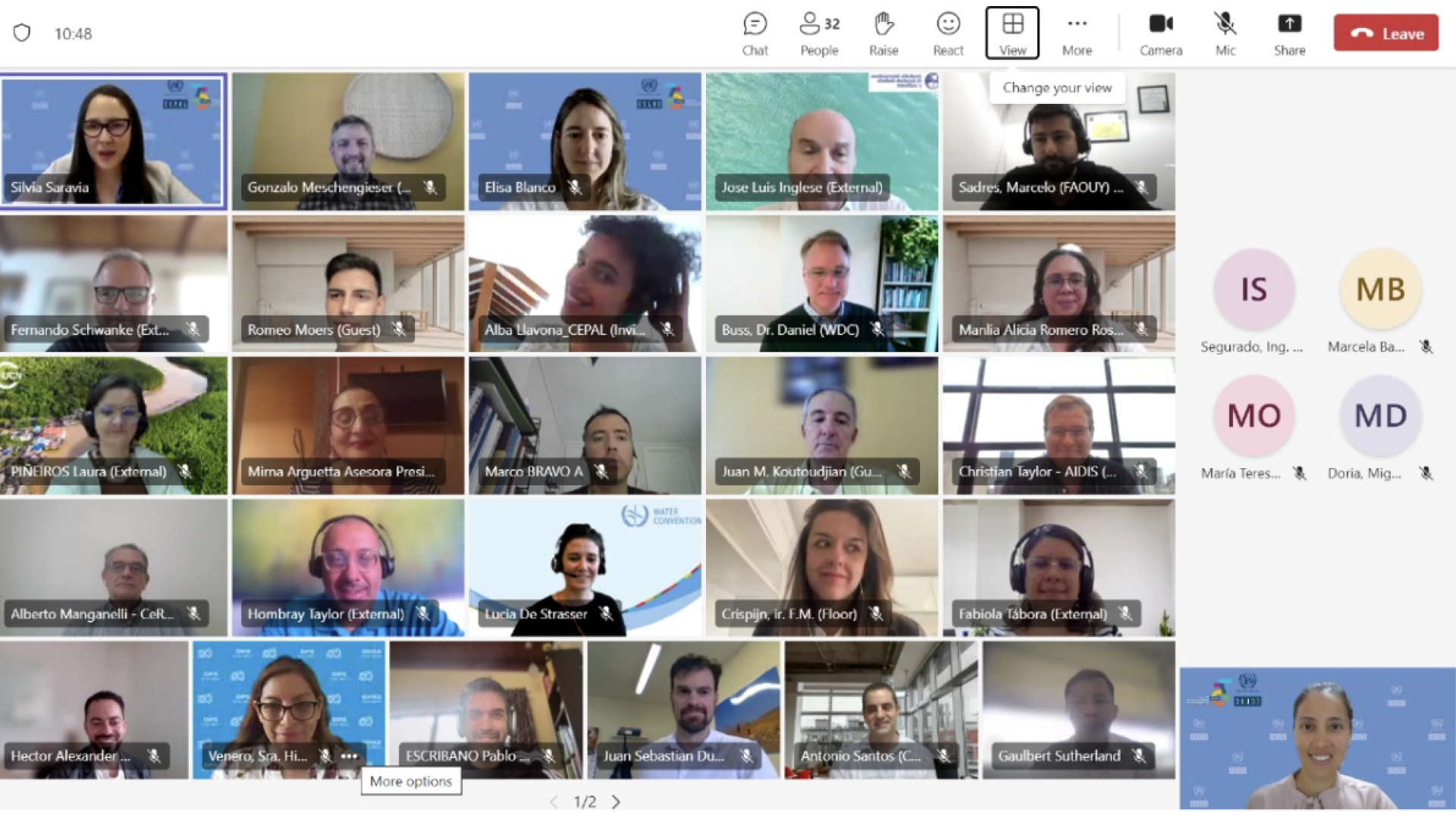Briefing note
The follow-up meeting for the Circular Economy project, financed jointly by the UNPDF project and German Cooperation, took place on April 24, 2024, signifying a pivotal moment in the ongoing collaboration between the two organizations. Building upon the foundational work already accomplished, the session delved into various pathways forward, including the exploration of national initiatives to transition the wastewater sector towards circular practices, alongside the evaluation of pilot projects.
Commencing with welcoming remarks from Silvia Chávez, Manager of International Cooperation at CONAGUA, and Silvia Saravia Matus from ECLAC, the meeting proceeded with a comprehensive overview of the project by ECLAC experts. This included an analysis of selected wastewater treatment plants (WWTPs) in Mexico and the identified opportunities stemming from these assessments. Additionally, insights from project endeavors in El Salvador were shared, underscoring their commitment to seeking funding avenues for transforming the Metapán WWTP into a circular system, along with exploring financial mechanisms for methane reduction programs at the national level.
In conclusion, the parties agreed to expand the study's scope to include other WWTPs across various states in Mexico and to conduct a more detailed feasibility assessment on one of the selected facilities. Furthermore, discussions were held regarding the development of a comprehensive national financing program to support circular economy projects in wastewater treatment, underscoring the collaborative efforts towards sustainable water management and public health enhancement.
In conclusion, it was agreed to expand the scope of the study to other WWTPs located in different states of the country, as well as to explore the feasibility in more detail in one of the selected WWTPs. Additionally, the possibility of developing a comprehensive national financing program for circular economy projects in wastewater treatment was discussed.



